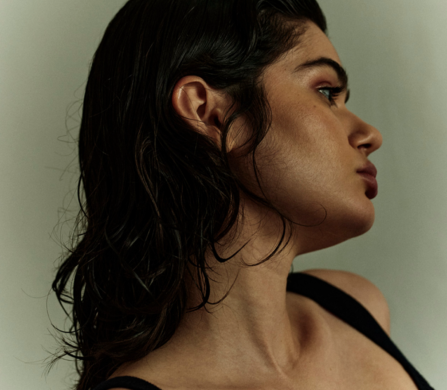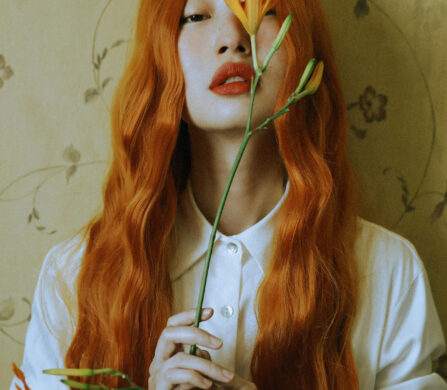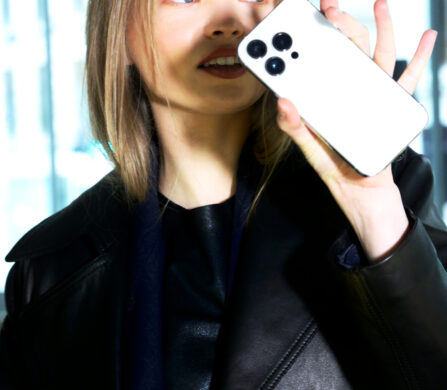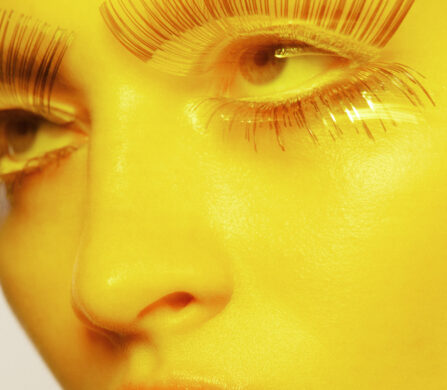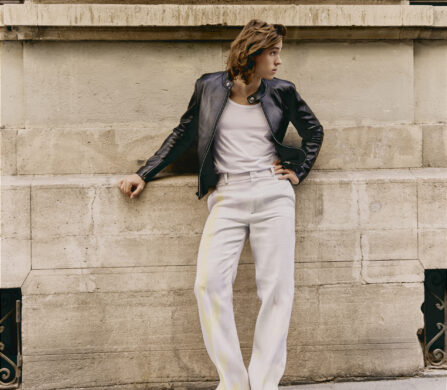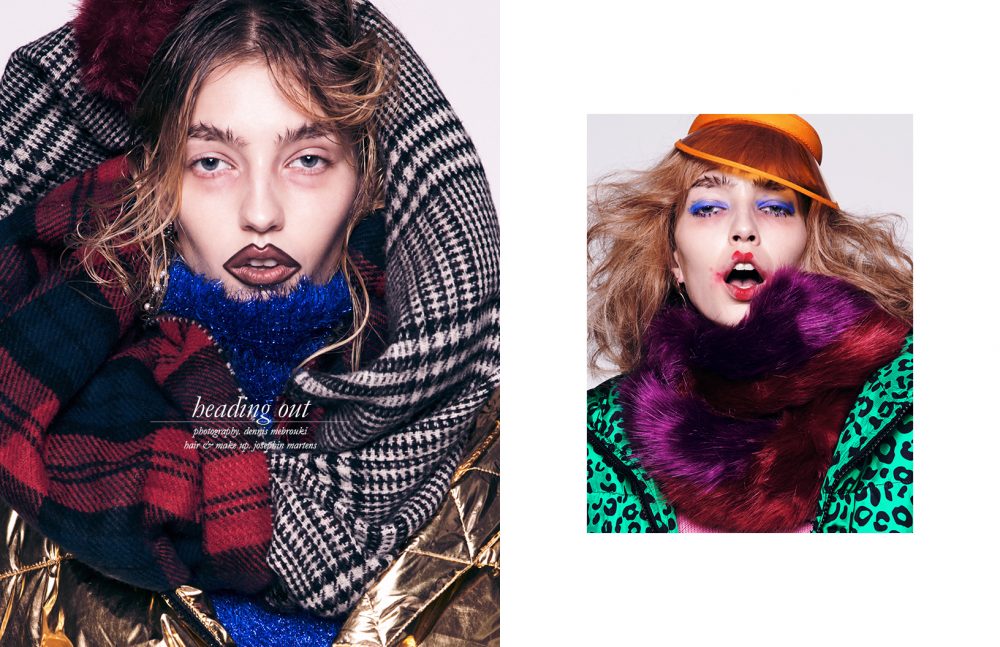
Armani / Armani Maestro Fluid Foundation
Mac Cosmetics / Retro Matte Liquid Paint Café au Chic
Lancome / Drama Liquid Pencil Nuit Intense
Benefit / 24 Hours Brow Setter Shaping & Setting Gel
Opposite
CHANEL / le Volume de Chanel Mascara
Tarte / Clay Pot Waterproof Eyeliner Crytsall Ball
YSL Beauty / Tatouage Couture Liquid Matt Lip Stain
Photographer Dennis Mebrouki makes a statement with this bold Schön! online editorial. Models Eileen Heydorn and Thula are made up to the nines by Josephin Martens using the likes of Urban Decay, Nars and Marc Jacobs.
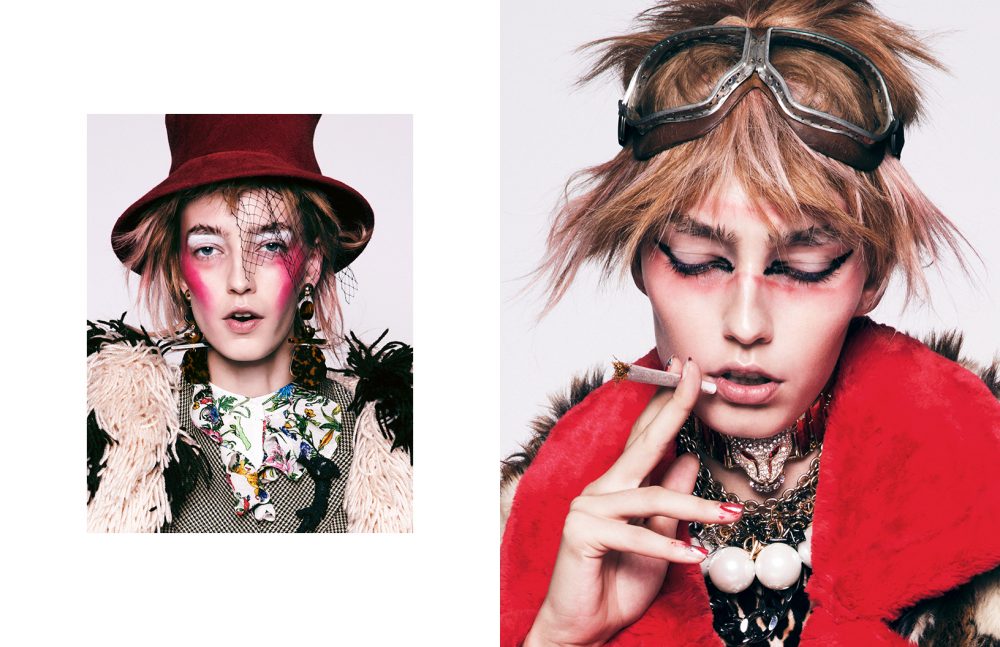
Tom Ford / Shade & Illuminate Cheeks Subliminate
Make Up Forever / Aqua Crem Snow
Laura Mercier / Transparent Loose Setting Powder
Opposite
Marc Jacobs Beauty / Highliner Gel Eye Crayon Eyeliner Blaquer
Nails Inc / Easy Chrome Nail Polish Steely Stare
Dior / Vernis Gel Shine and Long Wear Nailpolish
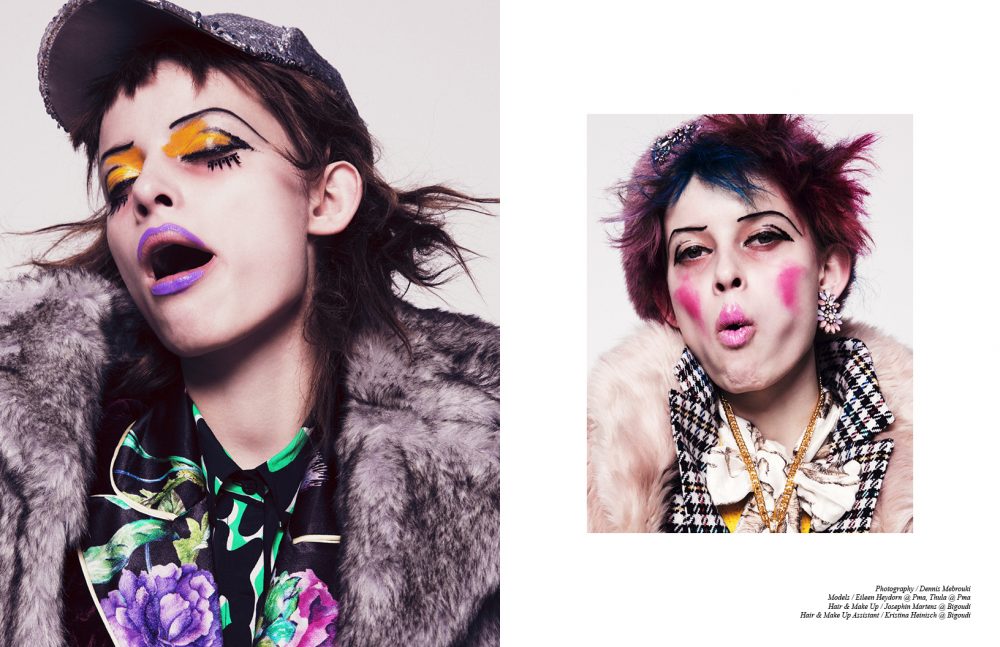
Pat McGrath Labs / Permagel Ultra Glide Eyepencil
Urban Decay / Partial False Lashes
MakeUpForever / Flash Colour Palette
Too Faced / Melted Latex Liquified High Shine Lipstick Twilight Zone
Opposite
Urban Decay / Glide on Eyepencil Black Velvet
Burberry / Effortless Eyebrow Definer
Nars Cosmetics / Blush Exhibit A
This Schön! online exclusive was produced by
Photography / Dennis Mebrouki
Models / Eileen Heydorn @ PMA, Thula @ PMA
Hair & Make Up / Josephin Martens @ Bigoudi
Hair & Make Up Assistant / Kristina Heinisch @ Bigoudi
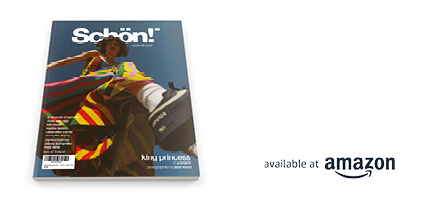
Discover the latest issue of Schön!.
Now available in print, as an ebook, online and on any mobile device.












